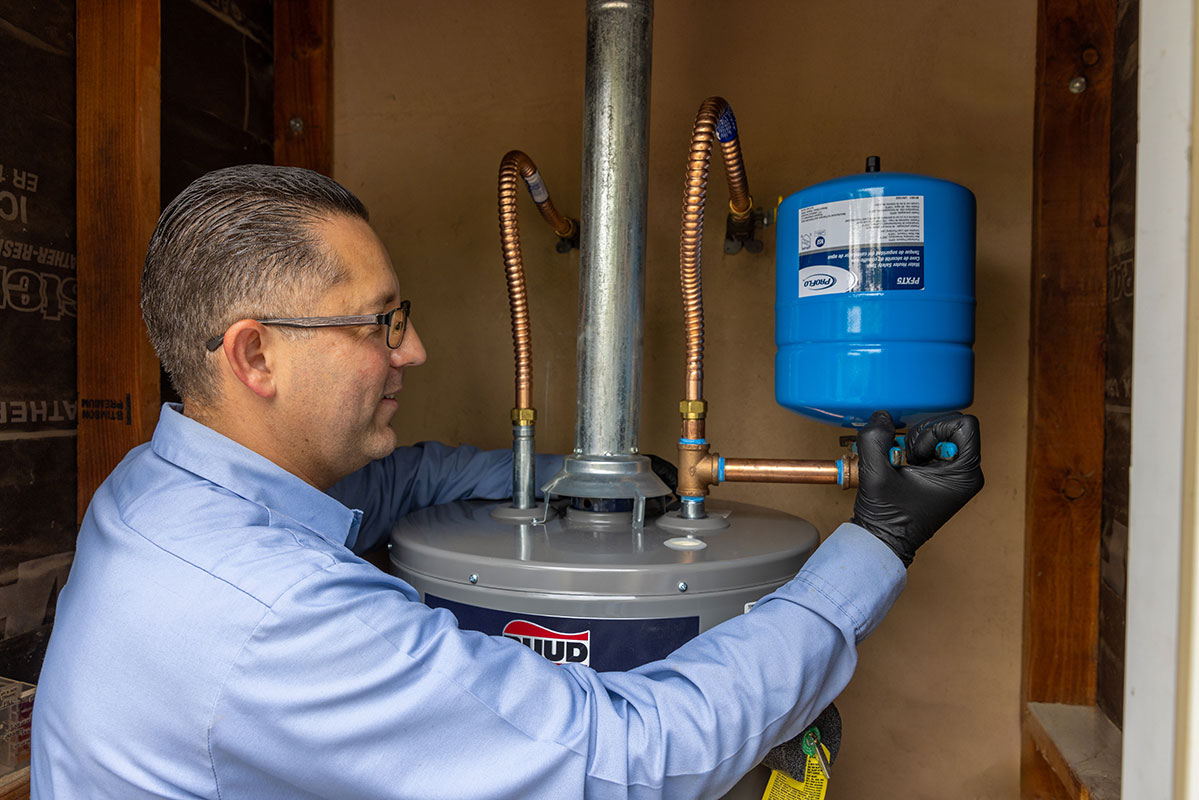Water Heater Installation for Better Hot Water Efficiency and Performance
Water Heater Installation for Better Hot Water Efficiency and Performance
Blog Article
Full Overview to Water Heating UnitSetup and Substitute
Understanding the ins and outs of water heater installment and substitute is crucial for homeowners looking for to guarantee effectiveness and integrity in their hot water supply. From choosing the suitable kind and dimension to carrying out a seamless installation procedure, numerous elements should be taken into consideration to prevent common pitfalls.
Sorts Of Hot Water Heater
When considering hot water heater installment and replacement, it is vital to understand the various sorts of water heating systems readily available in the marketplace. The most common types include tank water heating units, tankless hot water heater, heatpump hot water heater, and solar water heating systems.
Tank water heating systems are standard systems that keep a details volume of warm water, making them easily offered when needed. In contrast, tankless water heaters supply warm water on need, eliminating the demand for storage space.
Heat pump hot water heater make use of electrical power to move warmth from the air or ground to warm water, providing significant power cost savings however needing even more room and certain installment problems. Lastly, solar hot water heater harness solar power to warmth water, offering an eco-friendly alternative with possible long-lasting expense financial savings, although they commonly need a backup system for gloomy days.
Recognizing these choices ensures notified decisions concerning installation and replacement, accommodating specific needs and preferences.
Choosing the Right Dimension
Selecting the proper dimension for a hot water heater is vital to make certain ideal efficiency and performance. A system that is also small will battle to fulfill house demands, leading to inconsistent hot water accessibility and raised energy consumption. On the other hand, a large water heater can cause unnecessary energy waste and higher energy bills.
To figure out the right size, consider the family's top warm water use. This can be computed based upon the number of occupants and their typical warm water needs. A household of four might require a water heater with an ability of 50 to 80 gallons, depending on the usage patterns, such as simultaneous showers and laundry.
In addition, assess the recovery price, which determines exactly how rapidly a heater can restore warm water after it has been made use of. For tankless designs, concentrate on the circulation rate, measured in gallons per minute (GPM), to guarantee it meets the house's synchronised need.
:max_bytes(150000):strip_icc()/installing-an-expansion-tank-2719066-hero-375405ad9eaa426a880e3ed978ba00f5.jpg)
Setup Process Introduction

Following, the old device should be disconnected and gotten rid of, taking treatment to comply with neighborhood codes and guidelines concerning disposal. When the old unit is out, the new water heating system can be placed in position. This step involves attaching the water lines, ensuring that all fittings are secure and leak-free.
After developing water connections, it's important to attach the power supply, whether electrical or gas, complying with the producer's guidelines meticulously. Once all links are made, the system ought to be full of water, and the power can be transformed back on. Ultimately, it is essential to inspect for leaks and ensure the water heater is operating appropriately before finishing the setup procedure.
Common Setup Errors

An additional constant blunder useful site is neglecting to adhere to neighborhood codes and regulations. Stopping working to adhere to these standards can not only lead to safety risks however might also result in costly fines or the demand for costly reinstallation.
Failing to safeguard links or utilizing the wrong kind of installations can lead to leaks and water damage. By avoiding these typical installation mistakes, house owners can guarantee their water heater runs securely and efficiently, making the most of performance and durability.
Upkeep Tips for Long Life
Appropriate maintenance of a water heating system is essential for its longevity and optimal efficiency. Routine examinations and servicing can avoid costly repairs and extend the device's life expectancy. Begin by inspecting the temperature setup; it should typically be set between 120 ° F and 140 ° F for optimal power effectiveness and safety and security.
Every six months, flush the tank to eliminate sediment accumulation, which can harm heating performance and cause rust. To do this, turn off the heating unit, attach a hose pipe to the drainpipe shutoff, and let the water run till it is clear.
Anode rods must be evaluated yearly and changed when they are corroded. These rods assist prevent storage tank rust by bring in corrosive aspects in the water.
Furthermore, examine the stress relief valve regularly to ensure it is working appropriately. This shutoff is vital for avoiding too much stress build-up within the tank.
Lastly, think about arranging a specialist upkeep check every few years for complete inspections and servicing. By sticking to these upkeep pointers, home owners can substantially enhance the efficiency, safety and security, and life expectancy of their water heating units, ensuring reputable warm water for several years ahead.
Verdict
In conclusion, correct setup and maintenance of water heating systems are important for making sure efficiency and long life. By comprehending these important facets, home owners can attain a reliable warm water supply while lessening prospective problems connected to water heating unit procedure.
Comprehending the details of water heating system installment and replacement is essential for homeowners looking for to make sure performance and reliability in their hot water supply.Tank water heating systems are conventional systems that store a particular quantity of warm water, making them conveniently offered when needed. In contrast, tankless water heating units give warm water on demand, getting rid of the demand for storage. Choosing a water heating unit that is either too little or also huge can lead to inadequacies, resulting in insufficient warm water supply or extreme energy intake.
By comprehending these important aspects, property owners can attain a trustworthy warm water supply while reducing prospective concerns connected to water heating Discover More Here system procedure. drain cleaning.
Report this page